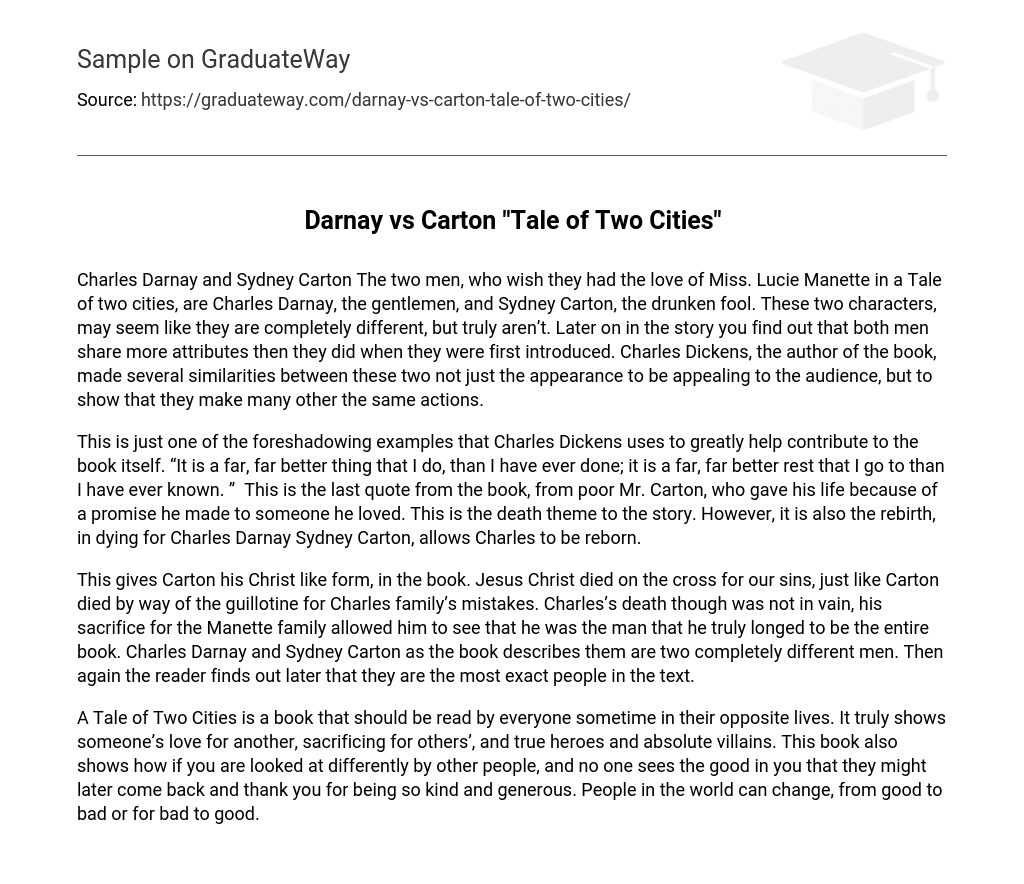Charles Darnay and Sydney Carton The two men, who wish they had the love of Miss. Lucie Manette in a Tale of two cities, are Charles Darnay, the gentlemen, and Sydney Carton, the drunken fool. These two characters, may seem like they are completely different, but truly aren’t. Later on in the story you find out that both men share more attributes then they did when they were first introduced. Charles Dickens, the author of the book, made several similarities between these two not just the appearance to be appealing to the audience, but to show that they make many other the same actions.
This is just one of the foreshadowing examples that Charles Dickens uses to greatly help contribute to the book itself. “It is a far, far better thing that I do, than I have ever done; it is a far, far better rest that I go to than I have ever known. ” This is the last quote from the book, from poor Mr. Carton, who gave his life because of a promise he made to someone he loved. This is the death theme to the story. However, it is also the rebirth, in dying for Charles Darnay Sydney Carton, allows Charles to be reborn.
This gives Carton his Christ like form, in the book. Jesus Christ died on the cross for our sins, just like Carton died by way of the guillotine for Charles family’s mistakes. Charles’s death though was not in vain, his sacrifice for the Manette family allowed him to see that he was the man that he truly longed to be the entire book. Charles Darnay and Sydney Carton as the book describes them are two completely different men. Then again the reader finds out later that they are the most exact people in the text.
A Tale of Two Cities is a book that should be read by everyone sometime in their opposite lives. It truly shows someone’s love for another, sacrificing for others’, and true heroes and absolute villains. This book also shows how if you are looked at differently by other people, and no one sees the good in you that they might later come back and thank you for being so kind and generous. People in the world can change, from good to bad or for bad to good.





